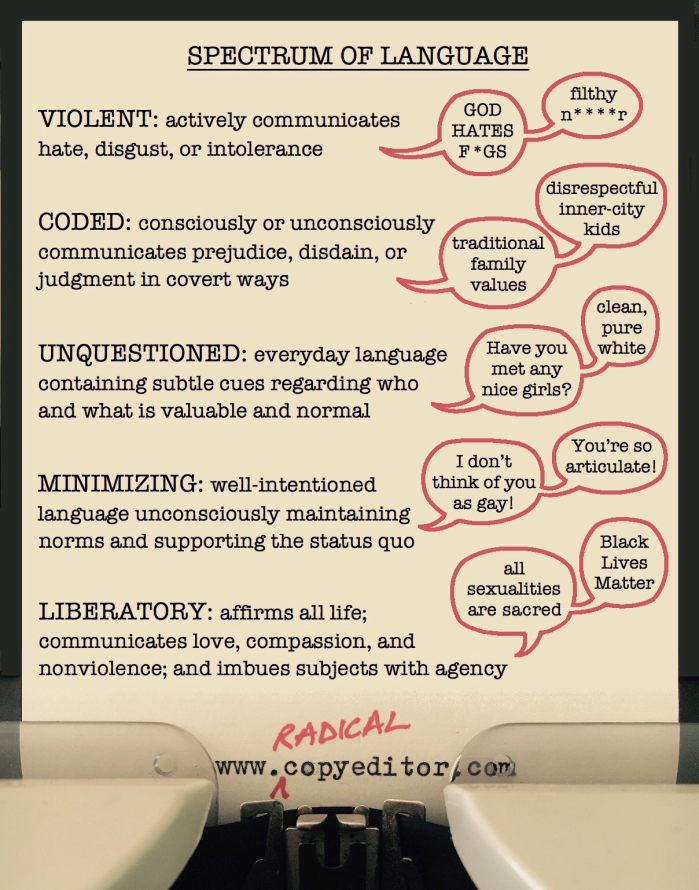All About Radical Copyediting
Being a radical copyeditor means affirming that language has the power to harm, to heal, and to dictate what’s real. It also means striving to help people care for each other and communicate across lines of difference, rather than believing there’s one best or most “correct” way to use words. Learn more via the posts below!

The Spectrum of Language
Radical copyediting is rooted in the truth that language isn’t neutral. Language is a vessel of culture, and it exists on a spectrum from violent to liberatory. Every time we use language, we are expressing cultural values and norms, whether we are aware of it or not.

Care, Not Correctness
At their best, language standards (like grammar, spelling, and style) help people communicate across lines of difference, rather than simply separating those who speak and write “correctly” from everyone else.

Radical Copyediting Is Not Language Policing
The goal of radical copyediting isn’t to promote one “right” way to use words—it’s to help people understand and care for each other across different identities and experiences.

The Power of Everyday Language to Cause Harm
Words matter. And although a single word can instigate a riot, a murder, or a suicide, most often words cause harm through accumulation, not one-time use. Everyday language causes harm by making certain folks seem less than human, abnormal, or nonexistent.

Debunking “Political Correctness”
Five reasons to strike the term “politically correct” from your vocabulary if you care about the power of words.